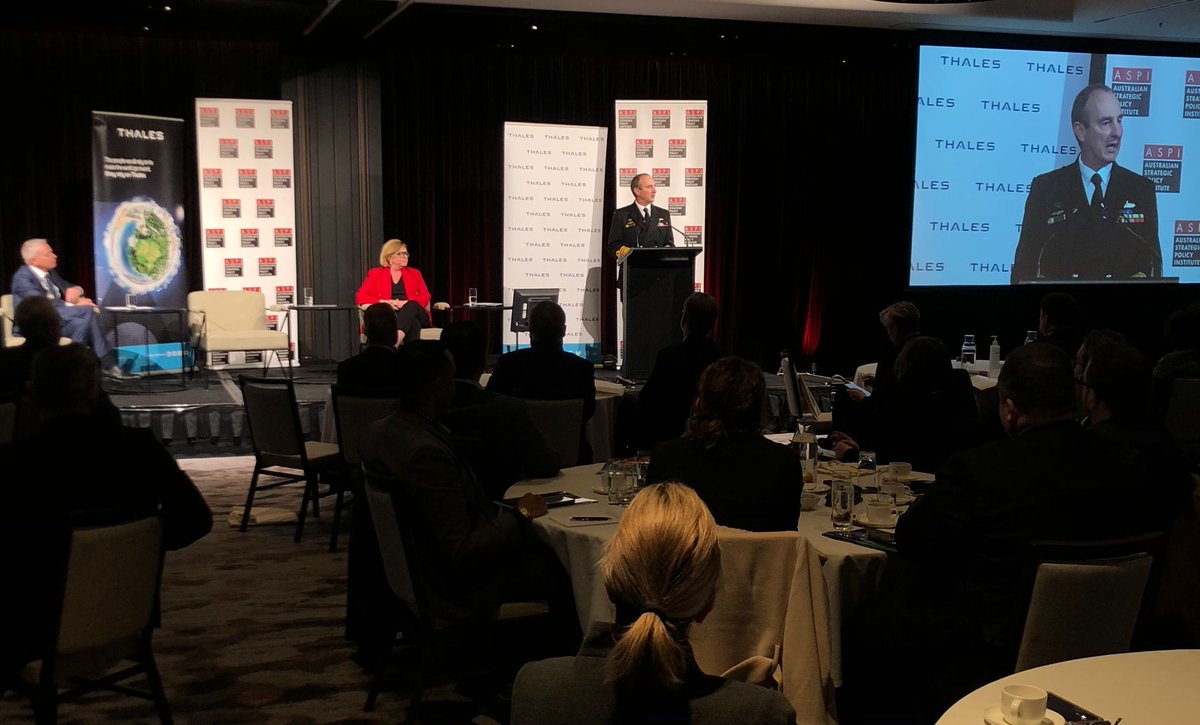
.@ThalesAustralia's CEO Chris Jenkins is joined by VCDF Vice Admiral David Johnston & Associate Secretary of Defence Katherine Jones to discuss Australia's military capability landscape in Session 3 of #ASPIConference2021
Follow the session ⬇️
Follow the session ⬇️

Associate Secretary of Defence Katherine Jones says Washington shouldn’t be the only one responding to the increasing threat in the international arena. Australia should continue to engage in and shape the strategic environment
Associate Secretary Katherine Jones outlines four pillars for shaping Australia's strategic environment:
1⃣ A tighter regional focus
2⃣ Modernising 🇦🇺's alliance with the US
3⃣ Investing more in our near neighbourhood
4⃣ Developing a networked model for regional engagement
1⃣ A tighter regional focus
2⃣ Modernising 🇦🇺's alliance with the US
3⃣ Investing more in our near neighbourhood
4⃣ Developing a networked model for regional engagement

Associate Secretary Jones states that the deteriorating strategic environment represents a historic challenge.
🇦🇺 must expand its focus on counter-terrorism and next gen technologies. As such, we needs more cooperation with allies; including science & technology collaboration
🇦🇺 must expand its focus on counter-terrorism and next gen technologies. As such, we needs more cooperation with allies; including science & technology collaboration
VCDF Vice Admiral David Johnston clearly states, 'Change, particularly technological change will continue to be a part of our environment’ 

Alongside technology and weapons advancement, VCDF Vice Admiral David Johnston argues that Australia must be more self-reliant against interruptions on supply chains by creating broader sovereign industrial capabilities
Addressing criticism of the pace of defence acquisition, VCDF Vice Admiral David Johnston notes the lengthy 'certification process'. He notes that new technology, especially those with a potential lethal effect, must reflect our national values and obligations as a nation
Associate Secretary of Defence Katherine Jones comments that Australia needs to be able to pivot more effectively. Part of this will mean creating a cohesive ‘ecosystem’ of defence capability management, incorporating government, industries and small business
Q: How do we drastically accelerate acquisition capabilities and deliver effect where it is most needed?
VCDF Vice Admiral Johnston replies that there must be an awareness of risk appetite from the public. This year alone, $42 billion has been directed to defence procurement
VCDF Vice Admiral Johnston replies that there must be an awareness of risk appetite from the public. This year alone, $42 billion has been directed to defence procurement
VCDF Vice Admiral David Johnston & Associate Secretary of Defence Katherine Jones describe Australia's ‘national challenge’ as developing a strong workforce in the cyber and technology fields. Australia needs to attract, retain and utilise these scientific minds
Session 3 'Defence Policy Settings: Shape, Deter, Respond' assessed Australia's strategic outlook and how can we strengthen alliances against emerging threats
Read this thread for the key points -#ASPIConference2021
Read this thread for the key points -#ASPIConference2021
• • •
Missing some Tweet in this thread? You can try to
force a refresh










